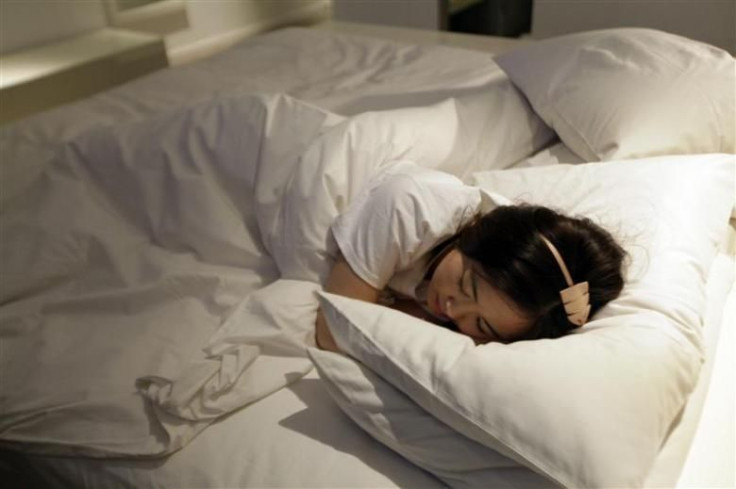Americans Are Sleeping More, Reading And Watching TV Less

Sleep deprivation is linked to a number of health problems, but some of those problems may reduce in the United States because it turns out the average amount of sleep is going up in the country. A recent study found that on an average, Americans are sleeping 17.3 minutes more each night, compared to 14 years ago.
Researchers from the Perelman School of Medicine at the University of Pennsylvania analyzed data from 181,335 participants, all aged 15 years or older, who responded to the American Time Use Survey between 2003 and 2016. The survey is conducted by the United States Census Bureau. During that time, the survey’s participants clocked an extra 7.5 hours of sleep each year.
Detailed analysis of the survey data showed researchers that average daily sleep duration went up by 1.4 minutes on weekdays, while it increased by 0.8 minutes during weekends, each year. Small as that may seem, it adds up to 17.3 minutes of additional sleep over the 14-year duration, or to put it another way, Americans on average are sleeping 4.4 full days more every year now than they were in 2003.
Since the survey also looks at other activities that participants spent their time on, researchers could draw some conclusions as to what caused this rise in the amount of average sleep. Among the reasons were the facts that people are now spending lesser time on nighttime leisure activities, like reading and watching TV before going to bed, and the ability to do more chores from home.
“This shows an increased willingness in parts of the population to give up pre-bed leisure activities to obtain more sleep. Also, the data suggest that increasing opportunities to work, learn, bank, shop, and perform administrative tasks online and from home freed up extra time, and some of it was likely used to get more sleep,” the study’s lead author, Mathias Basner, said in a statement Thursday.
Looking at the various age groups — from high school students to those in the active labor force, as well as those who were unemployed or retired — showed no specific difference in trends.
The researchers also found a positive correlation between the increase in sleep duration and internet searches on the topic of sleep, as well as the number of publications that discuss sleep deprivation and its negative consequences. The study did not make a causal link between these phenomena but expressed hope that increasing awareness around the issue could lead to healthier sleep patterns.
Among the many health problems associated with sleeplessness are obesity, hypertension, diabetes, cardiovascular disease, and declines in cognitive function, including Alzheimer’s disease. A study from the United Kingdom in early 2017 also found a link between sleep-deprived teenagers and an increase in their propensity toward committing crimes as adults. Another study from 2017 found that sleeping too little could also affect people’s social lives, not just their physical and mental health.
According to experts, adults should sleep between 7 and 9 hours each night.
“As researchers, increasing awareness of short sleep and its consequences remains a critically important task to improve public health. At the same time, this data provides new hope that these efforts may be effective in motivating many Americans to sleep more,” Basner said.
Titled “Sleep Duration in the United States 2003-2016: First Signs of Success in the Fight Against Sleep Deficiency?” the study appeared online Jan. 8 in the journal Sleep.
© Copyright IBTimes 2024. All rights reserved.





















